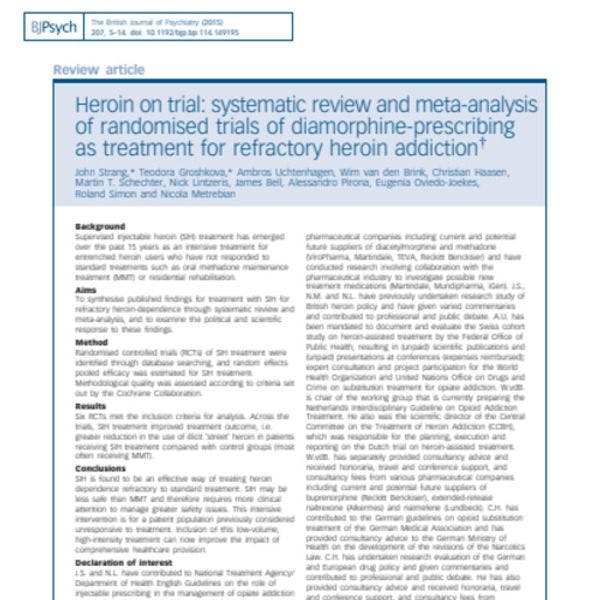L’Heroïne mise à l’essai
Selon cette étude publiée dans le British Journal of Psychiatry, l’injection supervisée d’héroïne est un moyen efficace de traiter la dépendance à cette substance, en particulier pour les patients n’étant pas réceptifs au traitement de substitution par méthadone ou buprénorphine. Pour en savoir plus, en anglais, veuillez lire les informations ci-dessous.
Abonnez-vous à l'Alerte mensuelle de l'IDPC pour recevoir des informations relatives à la politique des drogues.
Supervised injectable heroin (SIH) treatment has emerged over the past 15 years as an intensive treatment for entrenched heroin users who have not responded to standard treatments such as oral methadone maintenance treatment (MMT) or residential rehabilitation.
Six randomised controlled trials (RCTs) met the inclusion criteria for analysis. Across the trials, SIH treatment improved treatment outcome, i.e. greater reduction in the use of illicit ‘street’ heroin in patients receiving SIH treatment compared with control groups (most often receiving MMT).
In this study published in the British Journal of Psychiatry, supervised injectable heroin was found to be an effective way of treating heroin dependence refractory to standard treatment. SIH may be less safe than MMT and therefore requires more clinical attention to manage greater safety issues. This intensive intervention is for a patient population previously considered unresponsive to treatment. Inclusion of this low-volume, high-intensity treatment can now improve the impact of comprehensive healthcare provision.
Keep up-to-date with drug policy developments by subscribing to the IDPC Monthly Alert.
